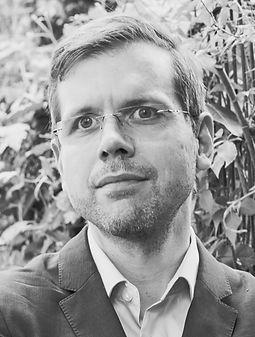

Dr. Lajos Berkes
E-mail: lajos.berkes@hu-berlin.de
Website: https://www.theologie.hu-berlin.de/de/professuren/stellen/seminar-neues-testament/sprachdozent-fuer-griechisch/dr-lajo
Research Interests:
Greek and Coptic Papyrology; Graeco-Roman, late antique, and early Islamic Egypt, esp. administrative and social history; Early Christianity, esp. Christian papyri and the textual history of the Infancy Gospel of Thomas
Biography
Lajos Berkes is a papyrologist, specialized in late Roman, Byzantine, and early Islamic Egypt (ca. 200 – 900 AD). Originally trained in classical philology and history, he has developed a research profile characterized by an interdisciplinary approach including especially Coptic and Arabic studies. He has gathered extensive experience in deciphering Greek and Coptic papyri, and has familiarized himself with editing Arabic documents. His interests extend beyond philological questions: He has worked and published on various issues of late antique administrative, economic, and social history. Furthermore, his research interests have recently started expanding to early Christianity, especially Christian literary papyri and the textual history of the Infancy Gospel of Thomas.
Project Abstract
Negotiating Time in Greek, Coptic, and Arabic Papyri from Egypt (ca. 300–900 AD)
The "long" late antiquity, the period roughly 300 – 900 AD, witnessed the rise of Christianity and Islam and a complete transformation of the Mediterranean world. Egypt is the only region where documentary sources have been preserved in large numbers over these 600 years. During this period, the country was a multicultural environment, in which Egyptian, Greek, Latin, and later Arabic languages and cultures, as well as polytheistic religions, Judaism, Christianity, and later Islam, coexisted. Greek, Coptic, and Arabic documentary papyri offer a unique perspective on the perception of time across all social strata. This project will follow two main lines of research. Firstly, it will provide a chronological overview of the annual dating systems attested in Greek, Coptic, and Arabic documents. It will focus on major changes and innovations and will analyze them in their historical context: What do they mean for understanding local perceptions of time? Special emphasis will be placed on the multilingual context by analyzing which dating systems were used in which language(s) and how they were synchronized. Secondly, it will be examined which events were remembered and taken into account in everyday documents. The main focus will lay on the term "kairos", which appears both in Greek and Coptic documentary papyri, and can refer to a variety of occasions, such as the time of harvest, the Persian occupation, or even a "whatever time" as an unspecified time frame in the future.
Curriculum vitae
Academic Positions
Since October 2016
Lecturer of Ancient Greek at the Theological Faculty at the Humboldt University of Berlin February
2015 – September 2016
Postdoctoral Researcher in the project Papyri zum Zusammenleben von Christen und Muslimen im früharabischen Ägypten (Heidelberg)
October 2013 – February 2015
Research Assistant (Wissenschaftlicher Mitarbeiter) at the Institut für Papyrologie, University of Heidelberg
Education
October 2010 – October 2013
PhD, University of Heidelberg
January – May 2009
University College London, Department of Greek and Latin (Erasmus scholarship)
2004 – 2010
MA in History, Latin, and Ancient Greek, Eötvös Loránd University, Budapest
Selected Publications
News Articles

Thank You for Another Successful Year
February 23, 2023
Chronoi Events
Chronoi Talks
February 23, 2023
Add a Title
February 23, 2023